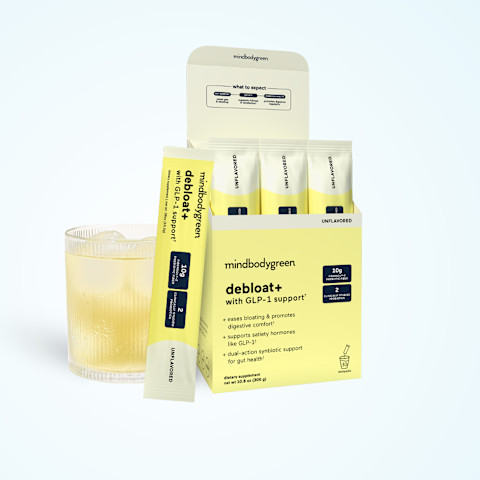Increase Your Fiber Intake To Reduce Your Risk Of Disabling Dementia

For decades, diet culture has told us that carbs are bad. For the record, this is not at all true—carbohydrates are the body’s main source of fuel (glucose) and critical for optimizing function throughout the central nervous, digestive, cardiovascular systems (and more).
One healthy carb, in particular—fiber—is extremely underconsumed by the U.S. population. In fact, a whopping 95% of Americans1 aren’t getting enough of this critical nutrient on a daily basis!
Fiber provides myriad health benefits (like promoting regularity, digestion support, and healthy cardiovascular function, to name a few), but we’re going to focus on a lesser-known cognitive benefit today: reduced dementia risk.
The link between dietary fiber and dementia risk
In a 21-year Japanese study published by Nutritional Neuroscience, scientists found that increasing dietary fiber intake was inversely associated with disabling dementia risk2.
Participants were divided into quartiles, based on their daily dietary fiber intake:
- Q1 consumed 2.2-10.6 grams of fiber per day
- Q2 consumed 10.7-13.7 grams of fiber per day
- Q3 consumed 13.8-17.9 grams of fiber per day
- Q4 consumed 18-65.3 grams of fiber per day
Compared to the lowest quartile (Q1) of daily fiber consumed, the risk reductions of disabling dementia were as follows:
- Q2: 17% reduced risk
- Q3: 19% reduced risk
- Q4: 26% reduced risk
While a combination of both insoluble and soluble fiber are needed to promote whole-body health, the study found that soluble fiber was more effective at reducing dementia risk.
It’s worth noting that only participants from Q4 were close to the recommended daily dietary fiber intakes for U.S. adults, and some in that range may have still missed the mark. American men need at least 38 grams of daily fiber, while women need at least 25 grams (and more if they’re pregnant or lactating), per the National Academies.
In another study published by The American Journal of Medicine, scientists found that a higher dietary fiber intake improved cognitive function3 in adults over 60, but benefits plateaued at a daily intake of 35 grams.
How to get more fiber in your diet
Getting more fiber in your diet can be challenging. Start by adding high-fiber foods (like whole grains, veggies, fruits, legumes, nuts, and seeds) to each meal to ensure you’re incrementally increasing your dietary fiber intake throughout the day.
For an easy and effective boost, you can also consider adding a serving of fiber powder to your daily routine.
The takeaway
Most of us (9.5 out of 10!) could use more dietary fiber in our diet for gut, heart, and brain health benefits—including reducing dementia risk and improving cognitive function as we age.
Consider adding high-fiber foods and/or a quality fiber supplement to your daily routine to ensure you’re getting ample fiber to support your brain health and longevity.


